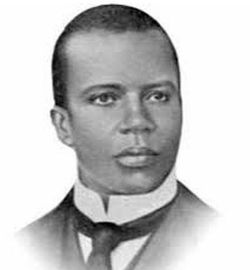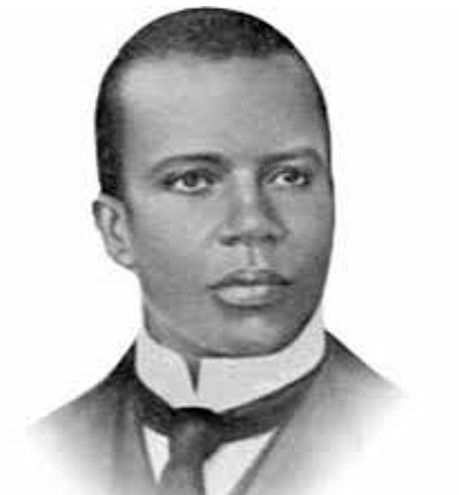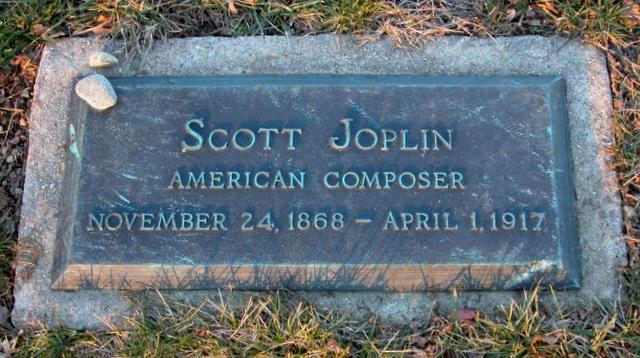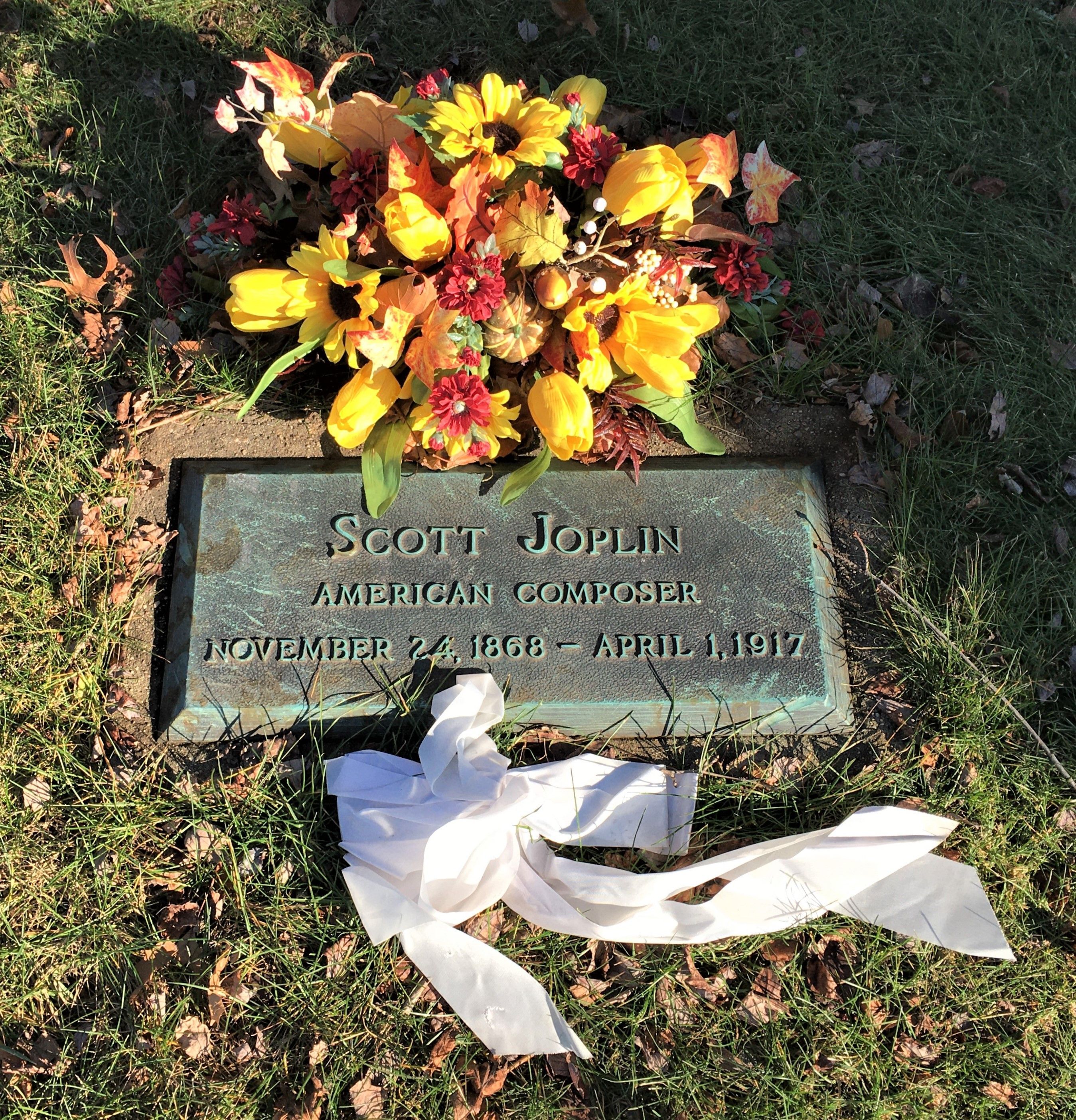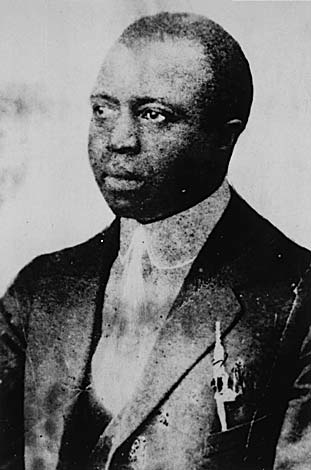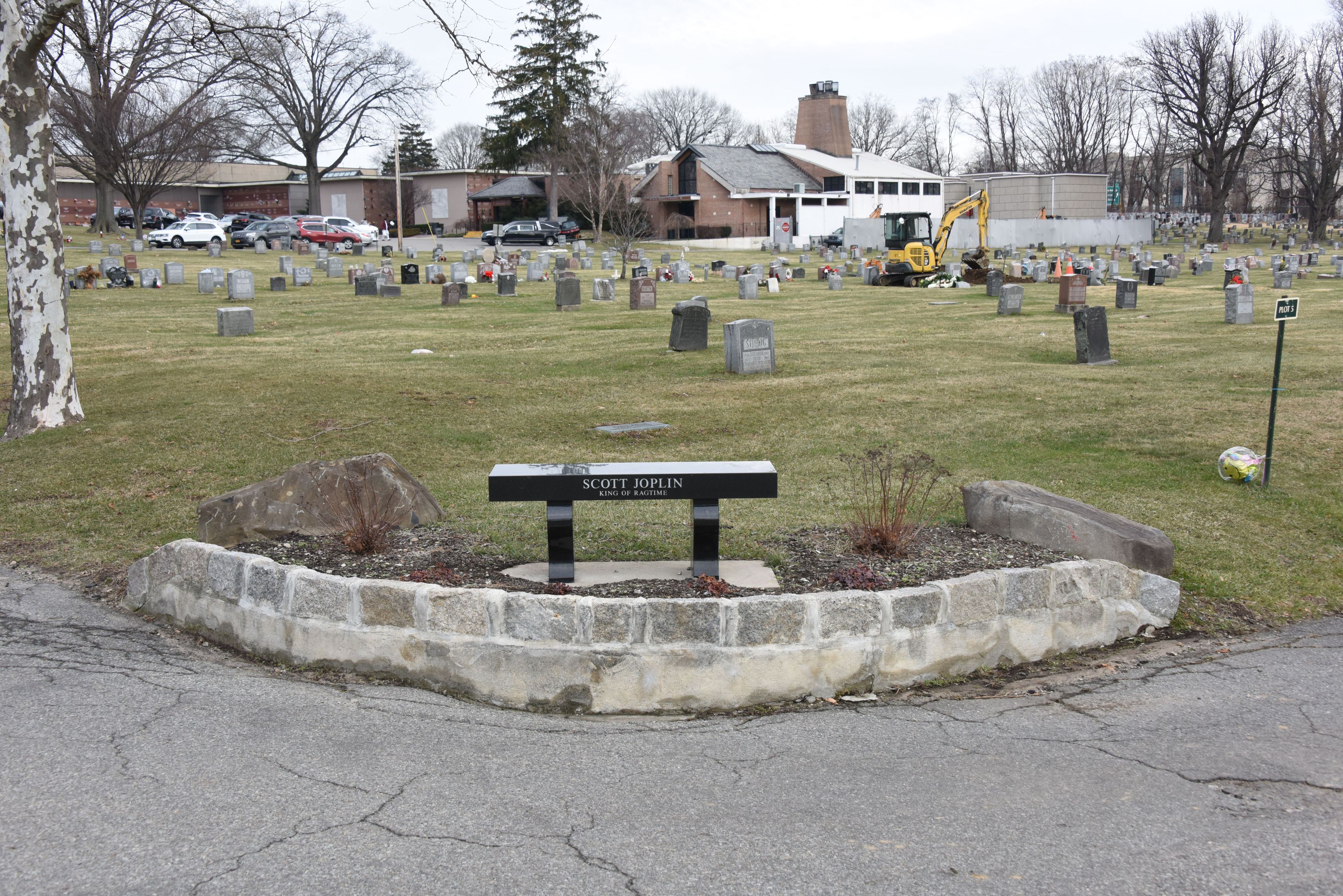Pulitzer Prize for Music Recipient, Composer. He is known as the "King of Ragtime," and considered one of the "Big Three" in ragtime music along with Francis Lamb and James Scott. Almost sixty years after his death, he gained renewed fame with his tune "The Entertainer", which was popularized in the 1973 Hollywood film "The Sting," receiving an Academy Award for Best Film Scoring Adaption for Marvin Hamlisch. His 1907 opera "Treemonisha" earned him a posthumous Pulitzer Prize for Music in 1976 when performed on a Broadway stage. Born near Linden, Texas, his family moved to Texarkana, Texas when he was age seven. Encouraged by his parents, he learned to play the banjo and piano, and in his late teens he began a career as a dance hall musician. After many years playing in saloons and brothels, he settled in St. Louis, Missouri about 1890, where he studied the music genre know now as "ragtime", a blend of European classical styles and African American harmonies and rhythm. In 1894, Joplin moved to Sedalia, Missouri, where he played at local social clubs and began composing music. In 1898, he tried to publish his first two ragtime tunes, but only the 1898 "Original Rags" was sold. In 1899, he sold "The Maple Leaf Rag" to a publisher, which became his first real success, earning him a small royalty income and encouraging him to write other tunes. Shortly after this, he wrote "The Ragtime Dance" which included stage work for dancers and a singing narrator. In 1901, he moved to St. Louis, Missouri, where he became associated with ragtime pioneer Tom Turpin. During this time, he taught music and wrote more compositions. In 1901, he met Alfred Ernst, conductor of the St. Louis Choral Symphony Society, who thought Joplin was a musical genius as a composer and helped him succeed. In the next two years, 1901 to 1902, Joplin wrote "Sunflower Slow Drag"; "Peacherine Rag"; "The Easy Winners"; "Cleopha"; "The Strenuous Life", which was his tribute to United States President Theodore Roosevelt; "A Breeze from Alabama"; "Elite Syncopations"; "The Entertainer"; and "The Ragtime Dance". His first opera, in 1903, was "A Guest of Honor," which was about the black leader Booker T. Washington's dinner at the White House with President Theodore Roosevelt in 1901. In 1904, he went to St. Louis for the World's Fair, where his ragtime tune "Cascades" received much favorable attention. In June of 1904, he divorced his first wife and married a woman he met while visiting relatives in Arkansas. He and his first wife had drifted apart after the death of their infant daughter in 1903. Unfortunately, his bride died of pneumonia ten weeks after their marriage, from the complications of a simple cold she developed during their honeymoon. After his bride's death, Joplin left Sedalia, never to return, and his career faltered. He survived by playing for money, but continued to compose, writing a few ragtime tunes. In 1907, he published "Treemonisha," an opera that he had been writing over the previous five years. He continued to write ragtime tunes, getting some published; in 1911, Irving Berlin published "Alexander's Ragtime Band," a tune that Joplin charged that was taken from his "A Real Slow Drag," a tune from "Treemonisha." However, he decided not to sue the wealthy and influential Berlin. By 1916, he was suffering from tertiary or the final stage of syphilis, which he had contracted some twenty years earlier, and he died in New York City, New York in 1917. He fell into obscurity, but jazz musicians revived his work in the 1940s, and the movie "The Sting" in 1973 brought him critical acclaim and the attention of the public.
Pulitzer Prize for Music Recipient, Composer. He is known as the "King of Ragtime," and considered one of the "Big Three" in ragtime music along with Francis Lamb and James Scott. Almost sixty years after his death, he gained renewed fame with his tune "The Entertainer", which was popularized in the 1973 Hollywood film "The Sting," receiving an Academy Award for Best Film Scoring Adaption for Marvin Hamlisch. His 1907 opera "Treemonisha" earned him a posthumous Pulitzer Prize for Music in 1976 when performed on a Broadway stage. Born near Linden, Texas, his family moved to Texarkana, Texas when he was age seven. Encouraged by his parents, he learned to play the banjo and piano, and in his late teens he began a career as a dance hall musician. After many years playing in saloons and brothels, he settled in St. Louis, Missouri about 1890, where he studied the music genre know now as "ragtime", a blend of European classical styles and African American harmonies and rhythm. In 1894, Joplin moved to Sedalia, Missouri, where he played at local social clubs and began composing music. In 1898, he tried to publish his first two ragtime tunes, but only the 1898 "Original Rags" was sold. In 1899, he sold "The Maple Leaf Rag" to a publisher, which became his first real success, earning him a small royalty income and encouraging him to write other tunes. Shortly after this, he wrote "The Ragtime Dance" which included stage work for dancers and a singing narrator. In 1901, he moved to St. Louis, Missouri, where he became associated with ragtime pioneer Tom Turpin. During this time, he taught music and wrote more compositions. In 1901, he met Alfred Ernst, conductor of the St. Louis Choral Symphony Society, who thought Joplin was a musical genius as a composer and helped him succeed. In the next two years, 1901 to 1902, Joplin wrote "Sunflower Slow Drag"; "Peacherine Rag"; "The Easy Winners"; "Cleopha"; "The Strenuous Life", which was his tribute to United States President Theodore Roosevelt; "A Breeze from Alabama"; "Elite Syncopations"; "The Entertainer"; and "The Ragtime Dance". His first opera, in 1903, was "A Guest of Honor," which was about the black leader Booker T. Washington's dinner at the White House with President Theodore Roosevelt in 1901. In 1904, he went to St. Louis for the World's Fair, where his ragtime tune "Cascades" received much favorable attention. In June of 1904, he divorced his first wife and married a woman he met while visiting relatives in Arkansas. He and his first wife had drifted apart after the death of their infant daughter in 1903. Unfortunately, his bride died of pneumonia ten weeks after their marriage, from the complications of a simple cold she developed during their honeymoon. After his bride's death, Joplin left Sedalia, never to return, and his career faltered. He survived by playing for money, but continued to compose, writing a few ragtime tunes. In 1907, he published "Treemonisha," an opera that he had been writing over the previous five years. He continued to write ragtime tunes, getting some published; in 1911, Irving Berlin published "Alexander's Ragtime Band," a tune that Joplin charged that was taken from his "A Real Slow Drag," a tune from "Treemonisha." However, he decided not to sue the wealthy and influential Berlin. By 1916, he was suffering from tertiary or the final stage of syphilis, which he had contracted some twenty years earlier, and he died in New York City, New York in 1917. He fell into obscurity, but jazz musicians revived his work in the 1940s, and the movie "The Sting" in 1973 brought him critical acclaim and the attention of the public.
Bio by: Kit and Morgan Benson
Inscription
(Grave marker)
American Composer
(Memorial Bench)
"King of Ragtime"
Gravesite Details
There is a memorial bench, which is inscribed "Scott Joplin," located in a corner of Plot 5, a few feet away from the grave
Family Members
Advertisement
